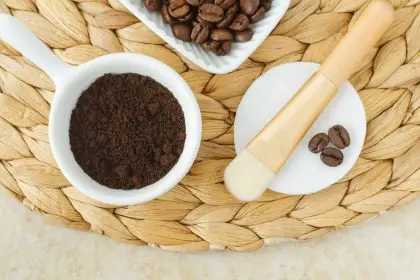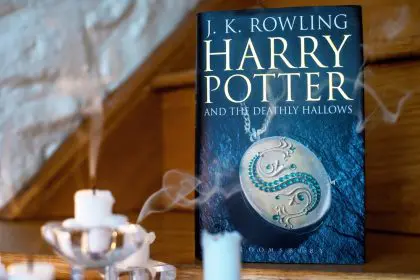
Onyeka Nubia, PhD’s history book, Blackamoores: Africans in Tudor England , Their Presence, Status, and Origins, is the result of Onyeka’s research over 23 years, on Africans in Tudor England. He has researched over 250,000 documents many of which he discovered. Onyeka has found over 246 entries in Tudor English parish records referring to Africans. He has done research throughout England and proved that Africans were present in villages such as Hatherleigh in Devon and cities including Plymouth, Bristol and London. Onyeka for the first time groups together the Africans he has found to show how they had connections to each other as families and how they were concentrated in certain areas and constituted communities. Some Africans served as members of court. Onyeka has been able to show that some of these Africans brought skills and abilities with them which were more advanced than those which existed in Tudor society.
He was a finalist for the Peoples Book Prize 2014 and received the Haringey Diversity Award (as part of Narrative Eye) 2014. Onyeka has been published in BBC History Magazine, History Today, Culture Pulse, among others.
Onyeka has his doctorate i history from Middlesex University, and his Bachelors and Masters in Law from University of London. His has presented at the House of Commons, London Metropolitan Archives, National Portrait Gallery London, Scottish National Gallery Edinburgh, Royal Shakespeare Company at Stratford upon Avon, Vanderbilt University and Fisk University in Nashville, Tenn.
Other works by Onyeka include The Whirlwind and the Storm (play) on the life and times of Marcus Garvey, The Phoenix (novel), The Black Prince (novel), and Waiting to Explode (novel).
Read what he has to say.
What inspired you to write your first book?
Necessity — because it was necessary.
Do you have a specific writing style?
I try to be as factual as possible.
Offer all the alternative perspectives, examine them one by one.
Offer a conclusion.
Expose outright falsehoods.
What books have most impacted your life (or life as an author)?
Many inc:
Ghazala, Faiza, Greater London Council Ethnic Minorities Unit. A History of the Black Presence in London. London: Greater London Council Strategic Policy Unit, 1986.
The factual information though in bits, came at a time when few people would reveal such information.
Williams, Chancellor. The Destruction of Black Civilization: Great Issues of a Race From 4500 BC to 2000 AD. Dubuque: Kendall/Hunt Publishing Company, 1971. 3rd revised edition, Chicago: Third World Press, 1987.
For the historian’s courage, determination and a simple narrative.
MacRitchie, David. Ancient and Modern Britons: A Retrospect, 2 Volumes. London: Kegan Paul and Company, 1884. New edition, Los Angeles: Preston, 1986.
For offering ideas and concepts.
A Star Called Henry, Roddy Doyle.
For writing style, imagination and humor.
What books are you currently reading? Why this author?
The Men Who Made Hollywood: The Lives of the Great Movie Moguls, Michael Freedland. It offers a realistic perspective on why and how the American dream was manufactured.
What new authors have piqued your interest?
Tom Reiss, The Black Count.
If you had to do it all over again, would you change anything about your latest work?
Not really. But subsequent work will contextualize this work and it’s importance may well increase.
Is there anything you find particularly challenging about writing or coming up with a concept for your book?
Everything.
When I started my research no one had ever published a book about the African presence in Tudor England. I was told by everyone there was nothing to find. And I was warned not to do it.
I have been threatened with violence whilst doing my research and after it was published, because I proved that not all Africans in Tudor England were slaves. My livelihood was threatened and I was offered rewards if I would lie and tell the world that the people I found were slaves.
At first I was met with apathy from the general public, until they understood what the work was about. Now there is a ground swell of public support and interest.
But those who oppose the work have considerable power.
But ultimately you the ordinary people will decide the fate of this work.
If you support and nourish it, it will grow from a seed into a great tree.
If not, it won’t.
What was the hardest part of completing this project?
Finding the time to do all the research.
Simplifying the information so that it is understandable.
What advice would you give other writers?
Never give up.
Never compromise your feelings, but always be guided by the evidence.
Describe the process in getting published.
It was not difficult, after the initial reticence, my problem was that too many people wanted to publish it. This caused unforeseen problems and I had to decide ethically which publisher offered the community links which
I respected.
What were the literary, psychological and/or logistical challenges in bringing your work to life?
For the most part the academic establishment in Britain is institutionally prejudiced.
They do not want the story of an African presence in Britain to be told.
But they do not know that they do not want this story told.
Their opposition is so subconsciously pathological.
Those who are interested in this are from the perspective of post-colonial studies, not pre-colonial.
So there are many challenges and hurdles.
Some are being overcome, others are yet to be.
Everyone’s process for writing is different. Explain yours.
Gather information.
Know your subject.
Understand.
Write.
Challenge your understanding.
Write.
Challenge your writing.
Write.
Leave it alone.
Read.
Write.
Get others to read.
Re-write.
Leave it alone.
What are your favorite books and why?
Ayi Kwei Armah – The Healers
A simple narrative with an overarching powerful theme of time, and the horrors of colonialism.
Joseph Campbell — The Hero with a thousand Faces
The cross-cultural comparative analysis of heroes manages to link and assess all religions and cultures without being preachy about it.
Please provide three “good to know” fact about you. Be creative. Tell us about your first job or the inspiration behind your writing.
I researched 250,000 documents to write this book.
Only one twentieth of my research is in this book
I started this research in 1986, by 1992 I had decided I would write on this subject.
What is the mission you set out to accomplish with your voice in this book?
To understand the past to understand the present.
Who are the authors you reread and why?
Lao Tzu – Tao Tai Ching
Sun Tzu – The Art of War
Marcus Garvey – Philosophy and Opinions
Miyamoto Musashi – The Book of Five Rings
Joseph Campbell — The Hero with a Thousand Faces
Each of the authors knows something about the world and human nature.
Their understanding is clinical in areas where such a clear perception may have been thought unlikely.
A great book has what?
Knows its readership and gives them a little more than what they expected.
Confronts and confounds their expectations and then offers something else instead.
You develop character and ideas by….
(In fiction) — life and the observation of it.
(In non-fiction)— the evidence.
Where would you travel if you could to write you next book?
Shangri-La
Telemec
What is the gift of reading and why does it around up a new world?
Masters forbade their slaves from reading and writing.
Since this kind of knowledge sets you free.
We find that reading is also a type of meditation
It is good for your spirit and calms your soul.
Those that read are changers and makers.
Those that read are also leaders.
Those that do not are followers who remain in the shadows blunted to reality.
Or like a dumb show follow robot like trends no matter how destructive.
The public is invited to meet Onyeka and hear him speak during his U.S. tour in October. He will visit the following locations in Atlanta. Events are free but seating may be limited:
- Oct. 3 – 2-5 pm, Medu Book Store
- Oct. 5 – 1-3 pm, Nubian Book Store
- Oct. 6 – 6-8 pm, Omenala Griot African Museum
- Oct. 7 – 6-8 pm, Georgia State University
- Oct. 8 – 7-9 pm, Hammonds House Museum
- Oct. 9 – 3:3-5:30 pm, MLK Jr. Library
- Oct. 10 – 10:30-12:30 pm, Hammonds House Museum
- Oct. 10 – 4-6 pm, Shrine of the Black Madonna











